Nourish, Train, Employ: My Time at Saffron Kitchen Project
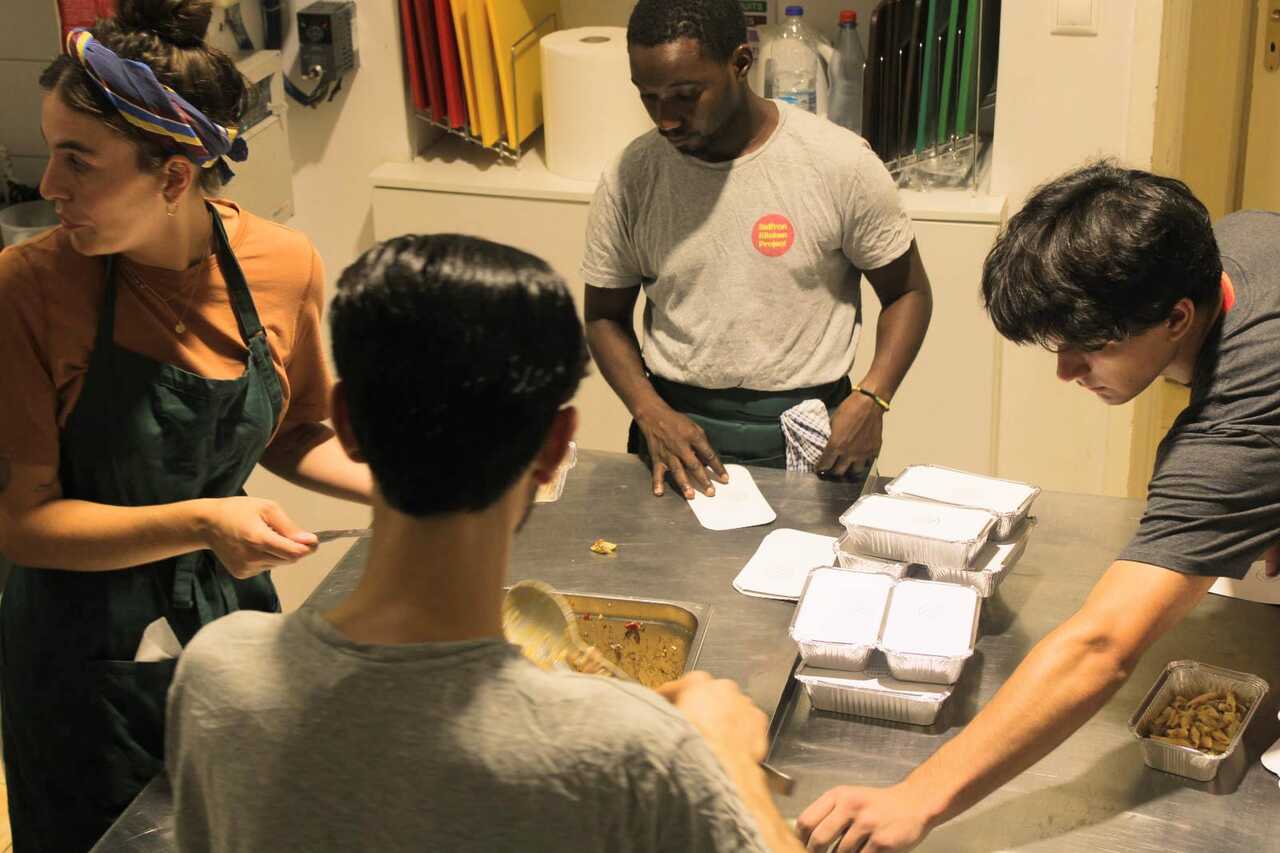
When we try to explain or comprehend something, we always grasp for numbers and statistics. Here are a few:
- At the end of 2022, 108.4 million people were forcibly displaced as of 2022 according to UN figures. That is the most amount of people on record, as well as the largest ever year-on-year increase.
- In the same year, 406.6 million people worldwide needed humanitarian assistance - and 83% of them lived in countries with experiences long-term crises.
- Also in 2022, more than 2,400 people died crossing the treacherous Mediterranean Sea.
- Aid group Intersos Greece estimates about 15,000 refugees in Athens lack access to daily meals.
On the one hand, these numbers help us to understand the scale of the problems they face, but at the same time they can make problems seem even more incomprehensible because they do not offer us a solution. Unlike SMART targets we can design ourselves, the problems of food security, human rights and supporting refugees do not have a fixed timeframe we can measure ourselves against - and the only way we will know if they are achievable is when we've solved them.
Small and immediate solutions are the true starting point to solving a problem. That's what I learnt at my six weeks at Saffron Kitchen Project (SKP) in Athens.
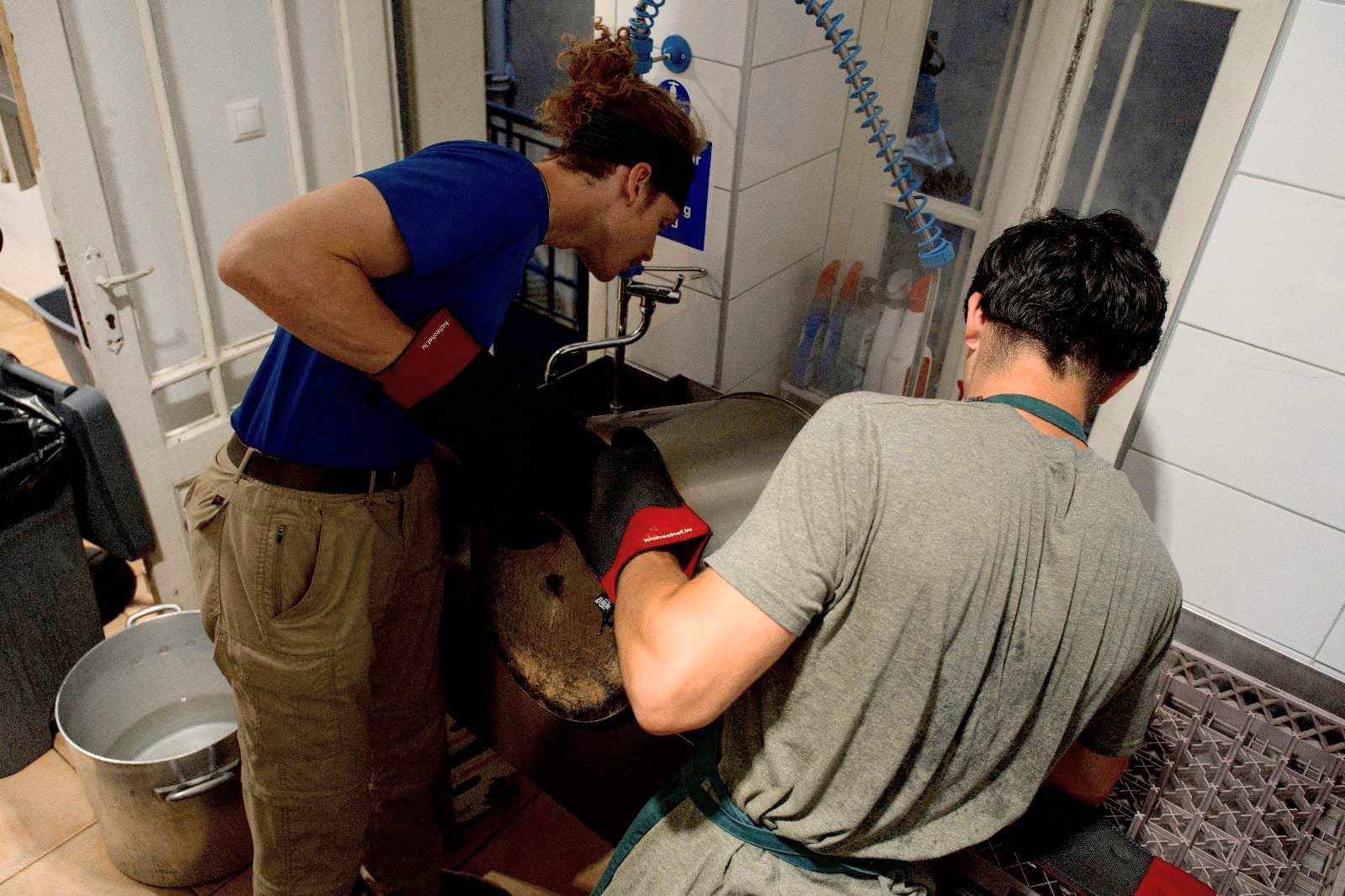
SKP's goals and modus operandi are described in its motto "Nourish, Train, Employ". The charity seeks to help Athens' most vulnerable people - asylum seeker, refugee or not - by providing nutritious and delicious daily meals, culinary training to foster self-suffiency, and employment in the SKP kitchen. Every day it provides an average of 400 meals to those who need them.
I came to SKP to help with media and social media, and by the end of my six weeks I had built up a media bank of photos and videos, written up daily educational posts on the issues of food security, agriculture and refugee issues, and arranged future media coverage by publications like The Guardian, Deutsche Welle and ARTE. But it was helping out in the SKP kitchen that I felt most satisfied, because I was directly contributing to the charity's goals and helping Athens' most vulnerable, even if I was just peeling carrots or scrubbing potatoes.
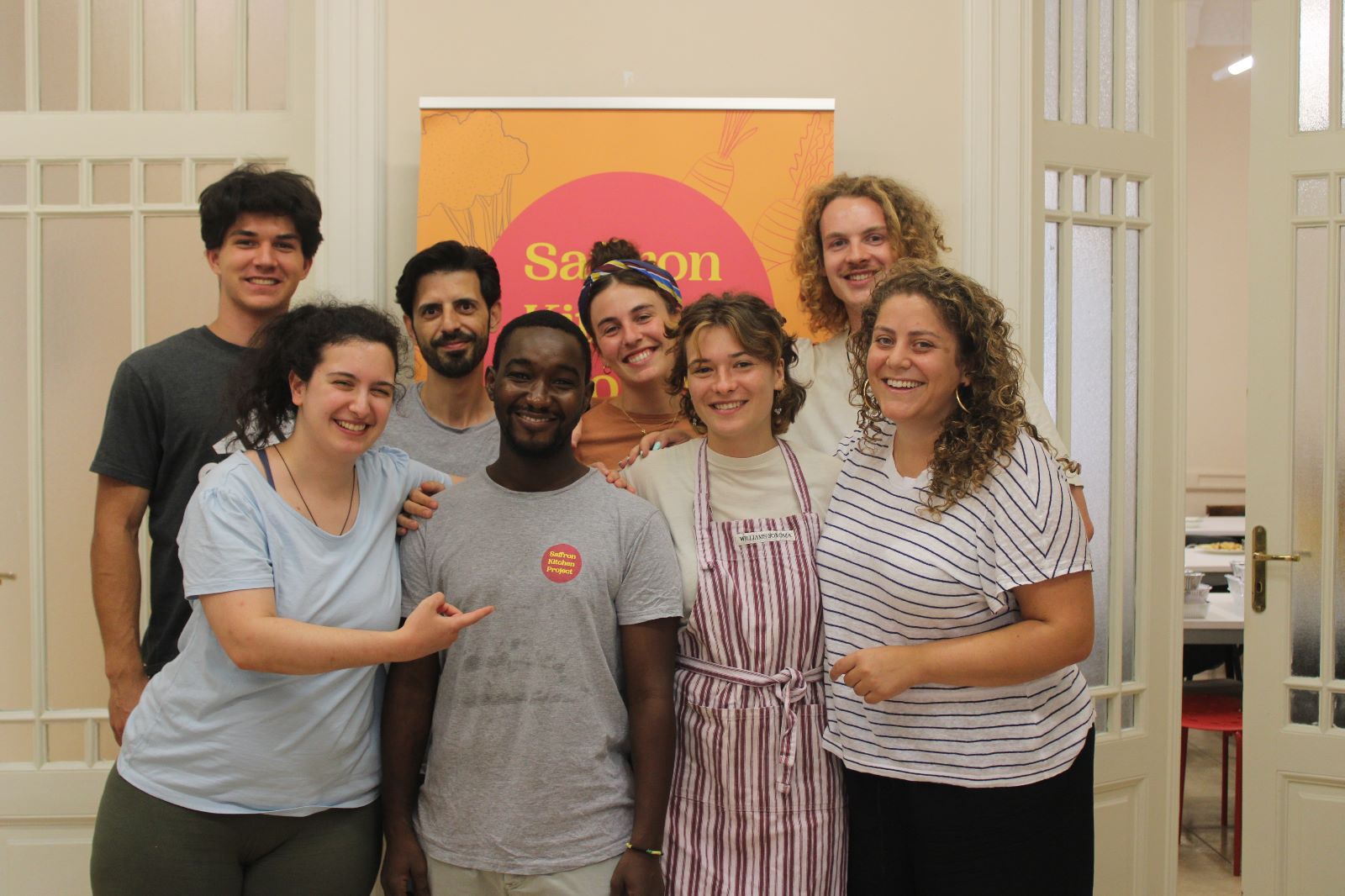
Other lessons I learnt included:
- Leadership is as much about listening as it is charting and following your own path, and I realised through “leading” the charity’s social media and media efforts that I couldn’t write or photograph anything without consulting others first - on content, on photos, on facts.
- Not being afraid to speak up when you have a differing opinion about something - I have had many discussions where we came to a compromise on approaches to social media and media, and therefore it’s a lot better to have these discussions earlier before they lead to miscommunication.
- Leadership is about taking criticism and improving from it - when I came to SKP I thought I could do everything right first time and operate quite independently, but the process of improving SKP’s media profile and advocacy has been more based on discussion between myself and other figures at the charity. It’s about learning to take criticism of your work, and not feeling personally hurt by it - ultimately you can only learn what not to do by not doing it.
- Persistence pays off, though ultimately you need to give people time to make up their minds. This was evident with my approach to gaining the interest of media organisations - by sending follow-up emails a week after original emails, I received multiple offers of interest back, showing that it is also a good idea to stay organised.
- My best ideas come in conversations with others, and not necessarily when thinking alone.
- The importance of verbal communication and making sure everyone knows what their part is and how to play it. While working on the food production line it became clear that everyone doing one job well was much more efficient than one person doing a lot of jobs.
- I can be forward about asking senior figures to do something to help me achieve my work properly - just asking for small requests to help arrange photos in the right way. I used to be timid about this but ultimately I shouldn’t be afraid to ask someone for help in order to execute my role to the best of my ability - especially as they may ask me to do the same.
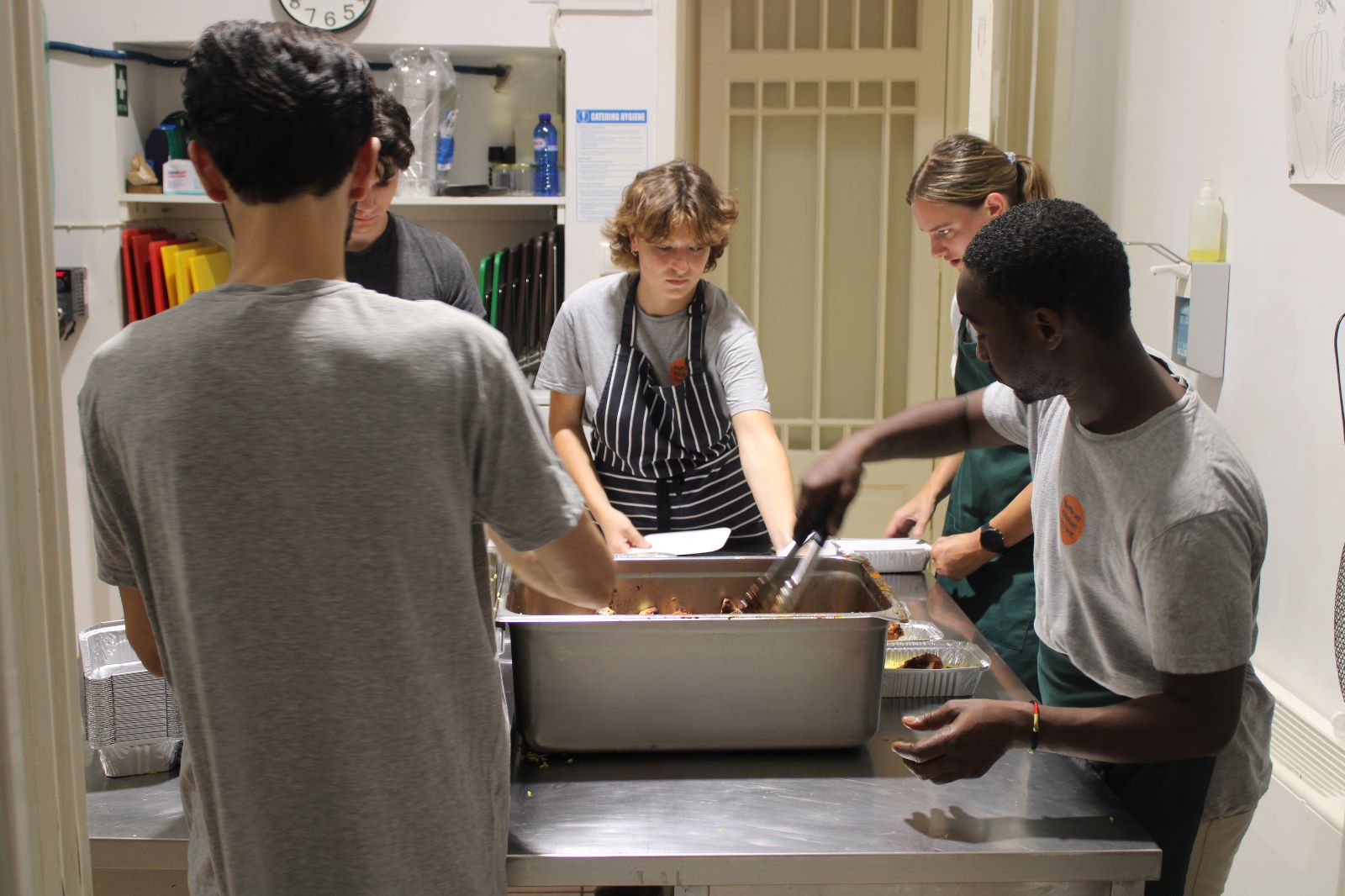
Living in Athens also had a huge impact on me in terms of illustrating the reality of the world refugee crisis. I’d always cared about this issue and been disgusted by the way refugees and asylum seekers are treated and portrayed in the UK and across Europe, but going to SKP also helped me deconstruct some of my subsconsciously paternalistic or patronising attitudes about refugees.
Writing advocacy posts about refugee issues forced me to confront these attitudes head-on, as every word is scrutinised and interpreted by a wide audience online. Refugees are not “inspirational” or “resilient” - they’re just people forced to make a difficult decision that should never be forced on anyone, and as those in a more fortunate position our job is to offer a helping hand if it’s needed while still recognising their independence and autonomy, just as with anyone else.
Also importantly, the constant news stories of boats capsizing in the Mediterranean during my stay illusrated that, for those not privileged or far away enough to ignore it, the refugee “crisis” that made headlines in 2015 never really ended. As someone studying ecology, I’m conscious that climate change and its impacts will force many people to make the difficult decision to leave home, and I hope one day to be able to find my place in helping those who do.
I'm grateful for my time at SKP and everyone at the charity who helped me to change my perspective on the many intertwining issues it aims to combat.
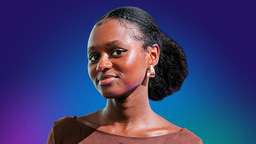
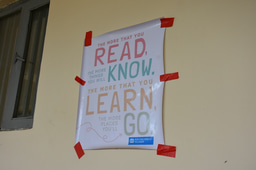
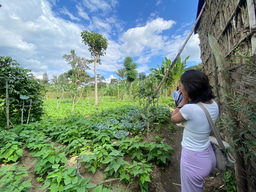
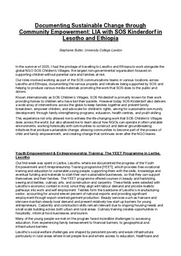
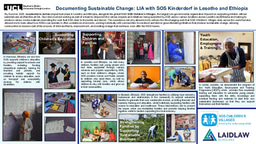
Please sign in
If you are a registered user on Laidlaw Scholars Network, please sign in